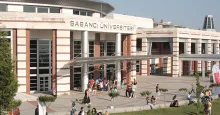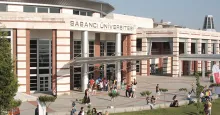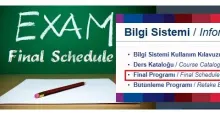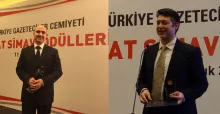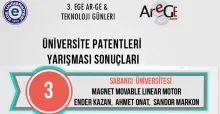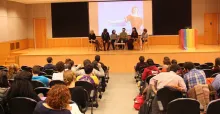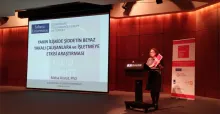Domestic violence affects the professional lives of women. Working women continue to suffer violence in the hands of their partners.

The Business Against Domestic Violence (BADV) Project implemented by the Sabancı University Corporate Governance Forum issued the “Impact of Relationship Violence on White-Collar Women and Businesses Report.”
Click for report.
Click for detailed results.
According to the report revealed in a conference on Tuesday, December 9th, 2014:
• 75% of white collar women, the majority of whom are university graduates, have been subject to a form of violence at least once. Among working women, 40% suffer psychological-emotional violence, 35% social violence, 17% economic violence, and 7% physical violence.
• The perceived main reason behind continuing a relationship despite violence is economic (84%). Among sufferers of violence, 16% of women admit that they continue the relationship because of economic reasons. 35% of working women think that their income is inadequate to meet the needs of themselves and their families.
• Meanwhile, 40% of men admit to mistreating their partners. 37.5% of men who are university graduates admit to subjecting their partners to some form of violence. This ratio is 24.5% among high school graduates.
Sabancı University Corporate Governance Forum takes a new step towards developing solutions to economic and social issues in association with markets and businesses. Utilizing the organizational and administrative capacities of businesses, the Forum designed a project to enable women who suffer violence in their relationships to take action.
The Business Against Domestic Violence (BADV) Project implemented with the support of the Government of the Netherlands’ Matra Fund and UNFPA disclosed the “Impact of Relationship Violence on White-Collar Women and Businesses Report” in a conference at the Sabancı Center on December 9th.
Introductory remarks were made by Consul-General of the Netherlands, Robert Schuddeboom. Keynote speakers were UNFPA Turkey Deputy Representative Zeynep Başarankut Kan and Emel Armutçu, Advisor to the President of Hürriyet Gazetecilik.
Sabancı University Corporate Governance Forum Director Melsa Ararat presented the “Impact of Relationship Violence on White-Collar Women and Businesses Report” . Melsa Ararat explained that the report was compiled with the voluntary participation of 19 companies and assessed the awareness of businesses regarding domestic violence, the incidence of violence towards women in their relationships, and the attitudes of businesses towards violence. The closing speech was made by KAMER Foundation President Nebahat Akkoç.
Consul-General of the Netherlands Robert Schuddeboom said that violence towards women was a serious issue worldwide. Schuddeboom continued, “We cannot tolerate a world where violence victims remain silent for fear of persecution. We cannot tolerate a world where women cannot speak up and stand for their rights, and perpetrators go unpunished. Equality of the sexes in political, social, economic and gender terms is critical to the struggle against violence. We believe that the Business Against Domestic Violence Project is helping to improve awareness regarding women’s rights and domestic violence, and we are proud to be a part of it.”
“Gender-based violence is an attack against human rights”
UNFPA Turkey Deputy Representative Zeynep Başarankut Kan began by asserting that gender-based violence is a blatant attack against human rights. Zeynep Başarankut Kan said, “Women are subjected to emotional and physical abuse regardless of their levels of education and positions in business. Cultural norms intimidate them into silence. As UNFPA, we work towards supporting gender equality and preventing violence against women in all aspects of life. Work and business are also among our focal areas. UNFPA expanded its work for gender equality and violence towards women, and did not hesitate to give full support to this project implemented by the Sabancı University Corporate Governance Forum and Gender and Women’s Studies Forum.”
“A title like this was nothing short of a dream 10 years ago”
Emel Armutçu, Advisor to the President of Hürriyet Gazetecilik, expressed her happiness that Sabancı University was leading a study into domestic violence in the world of business. Armutçu said, “A title like this was nothing short of a dream 10 years ago. Everybody knew there was a serious issue, but no one was talking about it. Businesses in Turkey must take this seriously and put in some efforts for their human resources. If you were to ask businesses now, they will all say that they don’t have such issues, but we know for a fact that they do. In developed countries, businesses have long since made alliances against this issue.”
“I don’t believe that violence towards women can be prevented by resorting to feelings of faith and mercy”
Nebahat Akkoç began by talking about the work of the KAMER Foundation. Akkoç defined violence towards women, explained its consequences, and discussed measures against violence. Nebahat Akkoç also shared the results of the awareness group studies they conducted in 27 provinces, saying she didn’t believe that violence towards women can be prevented by resorting to feelings of faith and mercy, and that emphasis had to be put on the fact that violence towards women is a violation of human rights.
Survey Results
The intention of the survey was to present the impact of violence suffered by women within the family or in the hands of their partners on the work environment and professional life in general. The report was compiled on the responses of 1715 working women.
The respondent profile has an average age of 35, has university degrees and are mostly (62%) married. Women and men are represented almost equally. Dependents are mostly members of the immediate family; children (45%) and spouses (35%). The average income of respondents is TL 3500, and more than 30% of the responding women are in management positions.
Women have been suffering violence in different forms and frequencies for the last five years
Working women have been subjected to violence in different forms and frequencies in the hands of their partners in last five years. Social violence is the most prevalent among working women with 40%. This is followed by psychological violence (35%), economic violence (35%), and physical violence (8%). The prevalence and incidence of these four forms of violence is greater in divorced women compared to married or never-married women. Meanwhile, some women do not know that what they have suffered is violence, or do not consider it violence.
Violence experiences are mostly shared with friends and neighbors; however, approximately 30% of the sufferers of violence do not talk to anyone about this. The most prevalent effect of violence on work is lack of spirit (54%) and exhaustion (36%). 30% of women have to leave their homes temporarily because of violence.
There is a strong correlation between finance and violence
The greatest reason underlying violence is believed to be finances (79%). The perceived main reason behind continuing a relationship despite violence is economic (84%). Among sufferers of violence, 16% of women admit that they continue the relationship because of economic reasons. 35% of working women think that their income is inadequate to meet the needs of themselves and their families. This in turn may be feeding the economic reasons that cause violence. Only three out of 10 respondents think that women can end violent relationships if they really want to. This attitude is consistent between men and women.
Violence will affect women at work
Almost all respondents (99%) believe that being subjected to violence by a partner will affect women at work. The majority of working people experience the negative effects of work-related stress on family life. 70% of working people state that they had difficulties in fulfilling their duties towards their families at least once in the past year due to work-related reasons.
The most prevalent effect of violence against women on work is lack of spirit (54%) and exhaustion (36%). Inability to focus and carelessness are other effects. Absenteeism (3%) and tardiness (4%) are rare. Losing a job due to domestic violence is a rare occurrence.
When faces with violence, asking for support from the workplace is not common. Recommended sources of support are social services specialists and women’s organizations (70%). The human reoucres departments of companies are among the least-preferred sources of support (2.2%). Non-work friends and neighbors are the most preferred persons to go to in cases of violence (43%). Approximately half of women (45%) say they would be embarrassed to discuss domestic violence with their managers at work.
About a quarter of respondents observe changes in the performance of their colleagues whom they believe to be suffering from violence. Reserve and depression are the most common symptoms observed in the workplace (28%).
The situation for men
Approximately 40% of men admit to mistreat or subject their partners to violence. The prevalence is higher among university graduates (37.5%) than high school graduates (24.5%). Half of men feel bad themselves when they mistreat their partners. Men who have never been married experience this more often than married men (16.8% versus 10.8%). Younger men have more awareness of the impact of violence on their partners.
Approximately half of male respondents have mistreated their partners at least once when arguing on a subject. The pretext for violence may be neglecting to cook, going out without notice, or refusing sexual intercourse.





